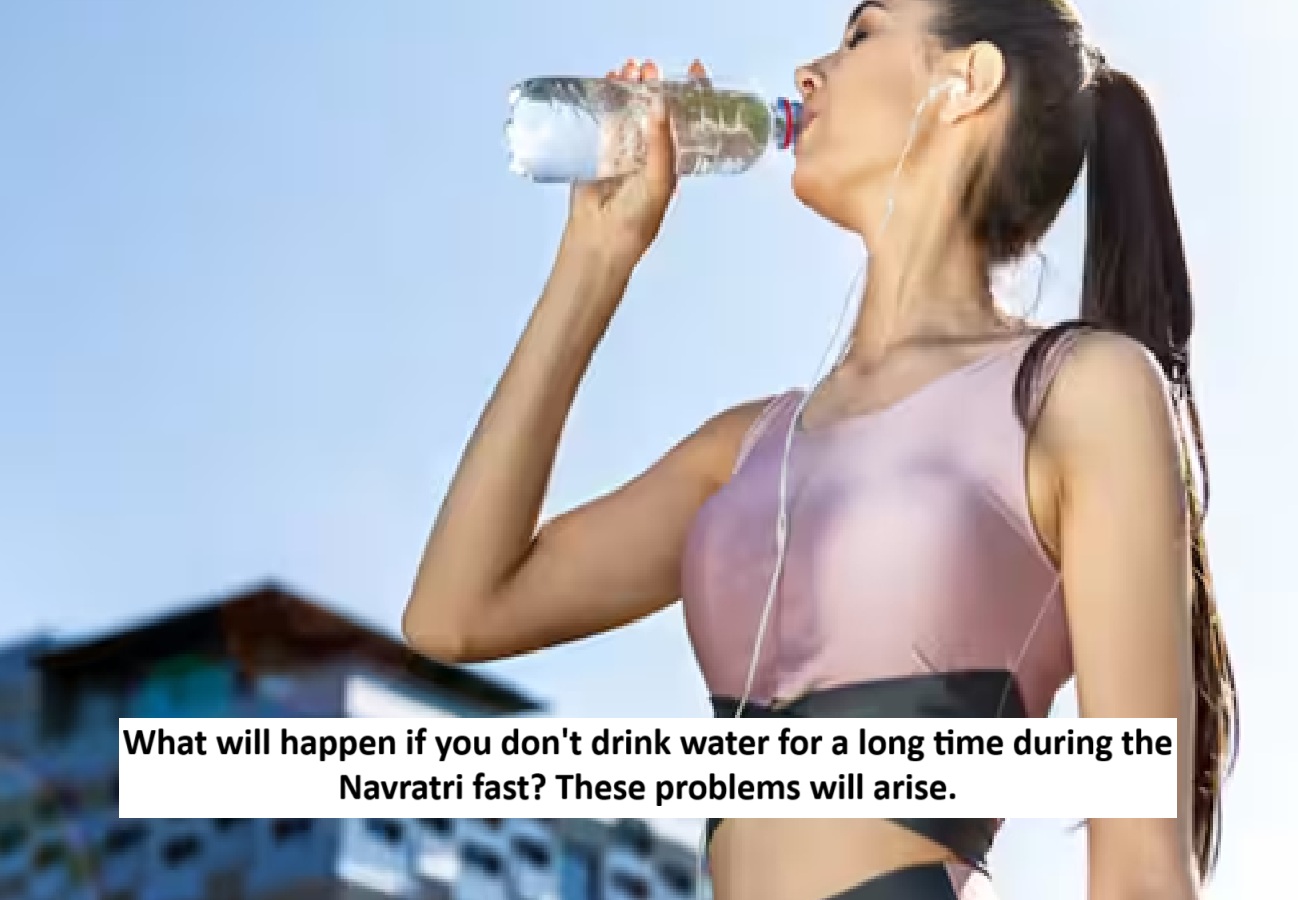
News Topical, Digital Desk : During the festival of Navratri, devotees immerse themselves in devotion to Goddess Durga. This nine-day festival not only holds spiritual and religious significance, but also provides an opportunity to refresh the body and mind. However, during the fast, many people reduce or stop drinking water altogether. Doing so can be dangerous for their health. Based on the latest research and medical advice, we are telling you what problems can arise from not drinking water for long periods during the Navratri fast, and how to prevent them.
Problems caused by not drinking water for a long time
Doctors say that water is the most essential part of our body. It not only keeps us hydrated but also maintains proper digestion, skin, and brain function. Avoiding water for extended periods during Navratri can lead to various health problems.
1. Dehydration: The most common problem caused by prolonged lack of water is dehydration. According to Dr. Divya Malik, Senior Consultant, Department of Dietetics and Nutrition, Apollo Spectra Hospital, Delhi, many people observe a waterless fast during Navratri, which depletes the body of water and electrolytes. This leads to problems like fatigue, dizziness, and lethargy. In severe cases, vomiting and diarrhea can also occur. According to a 2024 study published in The Journal of Nutrition, even a 2-3% water deficiency can reduce brain function, making it difficult to concentrate, and can also lead to mood swings and headaches.
2. Digestive problems: Not drinking water for long periods of time has a negative impact on the digestive system. Experts say that during fasting, people often eat heavy foods like sago, buckwheat flour, or potatoes, but drink less water. This can lead to constipation, gas, and acidity. According to research published in the American Journal of Gastroenterology (2025), lack of water can cause stool to accumulate in the intestines, which increases constipation.
3. Blood sugar imbalance: Drinking less water during fasting can be dangerous for diabetic patients. In fact, staying hungry for long periods of time and not drinking water during fasting can cause blood sugar levels to drop suddenly. Eating sweets to break the fast can also cause a sudden increase in blood sugar levels. According to a 2024 study published in the journal Diabetes Care, dehydration affects insulin sensitivity, making blood sugar control difficult in diabetic patients. Diabetic patients should not observe a waterless fast without consulting a doctor.
4. Bad effects on the skin: Dehydration also affects the skin. Consuming less water during a fast can lead to dry skin, chapped lips, and early appearance of wrinkles. According to a study published in the Journal of Clinical and Aesthetic Dermatology (2025), drinking 8-10 glasses of water daily helps maintain skin moisture and promote collagen production.
5. Kidney stress: Prolonged lack of water also negatively impacts the kidneys. Lack of water reduces urine output, which increases the risk of toxins accumulating in the kidneys. This can lead to urinary tract infections (UTIs) or kidney stones.
--Advertisement--

 Share
Share



